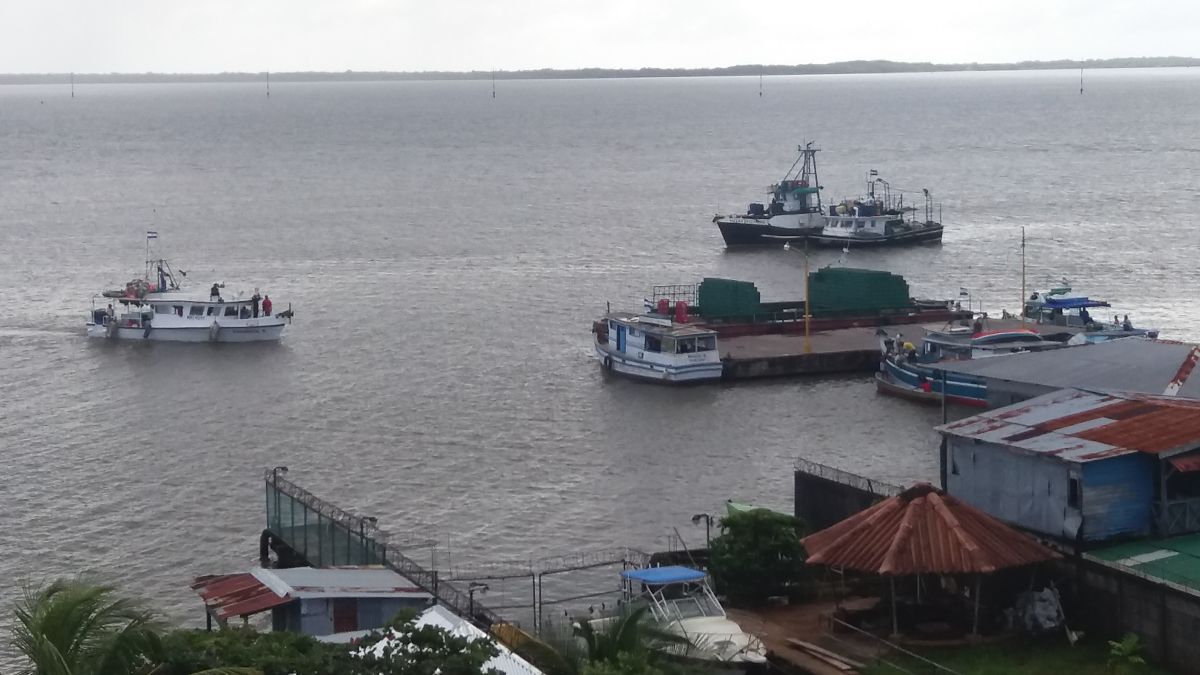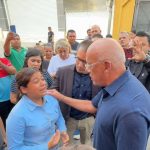The promise to provide the country with a deepwater port in the Caribbean (the location varies between Monkey Point and Bluefields), still does not have a source of financing, despite the fact that the project was resumed as of 2018, and that even in July 2020, the Minister of Transport and Infrastructure, retired general, Óscar Mojica, presented it to Non-Governmental Organizations with a presence in the country and to the Nicaraguan ambassadors in the world.
This week, the executive president of the Central American Bank for Economic Integration (CABEI), Dante Mossi, said that they were exploring options to renovate the port of Bluefieldsbut the proposed financing model, and the lack of investors given the prevailing climate of instability in Nicaraguadid not remove the uncertainty.
Mossi said that the figure of a lease could be used (in which an investor would build the port, and hand it over to the country so that it could use it and pay for the investment with the profits it generates), or a trust (a person, company or country gives an entity like CABEI the money it costs to build a port, so that it can ensure that the work is done without the money being lost in the process, and then charge Nicaragua), to develop the work, without raise the country’s public debt.
In the case of the trust, “I am sure they are thinking of (the People’s Republic of China), which has enough money to give it to CABEI, (without the need to be a member), and give it instructions to ensure that the aforementioned port is built. in Bluefields, detailing the characteristics of the work, the terms and commissions to be applied, as well as the terms and rates to recover the money,” said an economics professor who knows about Nicaragua’s plans to build that work.
“China could charge them or not, telling CABEI to make sure the money is not misused,” he added.
However, an expert on logistics issues considers the Chinese option “difficult”, because that country is not releasing money to the regime, and although it is true, it approved USD 60 million for a housing project, remember that Costa Rica was given 300 million 15 years ago, “but that was the only thing they gave him, at a time when they were distributing money, and they are no longer in that plan.”
This expert considers it more plausible that it is a matter of implementing a public-private project, and although he acknowledges that this is also difficult -because it would be necessary to find someone who wants to associate with the regime, and entrust him with several hundred million dollars- he insists that “rather I think they’re talking about that.”
Put CABEI at risk to favor Ortega?
In the world of finance, a trust is basically an accounting figure, which is implemented when a country has debt limitations, which often leads to an agreement with the International Monetary Fund. In that case, it is not even necessary for the Legislature to authorize it, because “the work itself is the guarantee of the credit,” said the Costa Rican economist and university professor, Ottón Solís.
The way of operating is that “the trust acquires a debt, builds the work, and rents it to the public operator, that is, to the Government”, with which it is possible to isolate the financial issue of the public institution, while the work It remains as a guarantee of the credit received by the trust, said the expert.
His opinion is that “a commercial bank would not lend to Nicaragua, but it is more likely that a multilateral entity would,” which dilutes the risk by ‘sharing’ it with other countries. Given the size of CABEI’s loan portfolio – which is close to 12 billion dollars – an entity like that can lend the 400 million that the port could cost, because even in the event of a total loss, that does not put the port at risk. to the bank.
Economist Julio Ricardo Hernández considered that “CABEI and the Ortega government are wrong to reach the extremes of indebting the country above what it should reasonably be indebted. Because that is the reason why they are looking for alternative mechanisms. It’s bad for the Bank’s soundness. That favor from Mossi for Ortega would be irresponsible with that of the Bank itself”.
Who risks investing in Nicaragua?
In July 2021, the president of the Central American Federation of Agricultural and Agroindustrial Chambers (Fecagro), Nils Leporowski, declared to CONFIDENTIAL that “no investor is crazy to invest right now in Nicaragua”.
Little more than a year later, the situation has not changed much, and if it has, it is for the worse, which is why the sources doubt that there are investors in the West willing to risk their money in the country.
“If we are talking about a private investor, the option to invest in Nicaragua is zero, because I don’t think they want to take risks in a country where there is no legal certainty, guarantees, or confidence that they will recover their investment. Who guarantees anything to that hypothetical investor, if this Government is capable of arresting anyone and ignoring it?”, said the professor.
The regime went from arresting business leaders to expropriating companies. Between them tomza, (company of Guatemalan origin, which sells gas for cooking); the Nicaraguan-owned security company Delta; the mining Plantel Los Angeles, of Nicaraguan and American capital); in addition to thousands of hectares of productive land that were invaded by sympathizers of the regime, including an avocado plantation, for which there is a judgment of USD 590 million against the countryeither the confiscation of the hurry pawn shop.
Based on this, the economic sources conclude that the only way to attract an investor is for him to be Chinese, be he a natural person, a company, or the Government itself, because “there are many people there who have money, but if it is a American, I don’t think so, because of the restrictions that their government places on them,” said the business advisor.

















